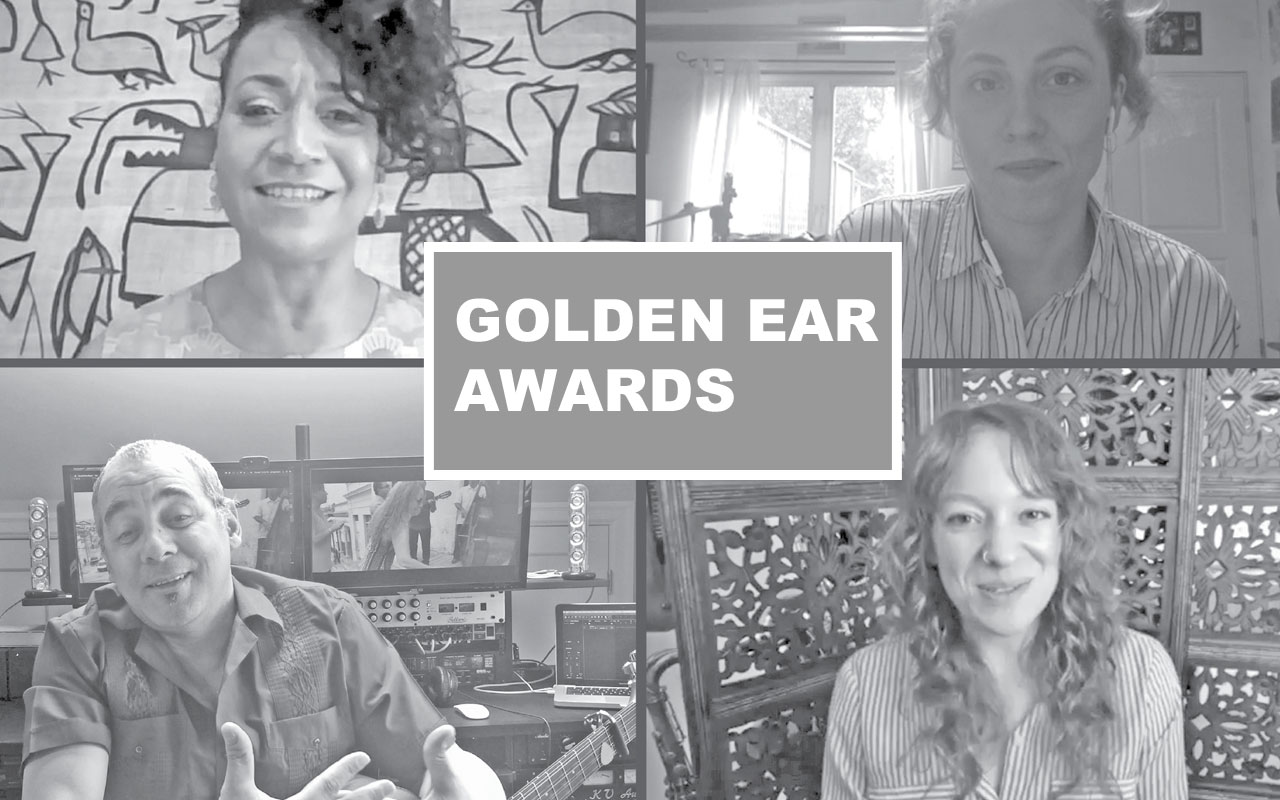
By Paul Rauch
On the evening of April 4, Earshot Jazz presented the annual Golden Ear & Seattle Jazz Hall of Fame Awards, the annual event recognizing the achievements of the vibrant jazz community in Seattle. This year however, the evening was presented under extraordinary circumstances. With the community in a statewide stay at home order due to the COVID-19 outbreak, Earshot found a way to continue this tradition via livestream, including two live sets broadcast from The Forum at Town Hall by the Marino Albero Trio.
Albero broke the silence of the evening with a riveting solo piece that ultimately landed on “My Favorite Things.” She was then joined by multi-reedist Hans Teuber and drummer D’Vonne Lewis, performing with the appropriate social distancing practiced on the large stage at this intimate venue now silent with a virtual audience in attendance. In these very difficult times, Albero addressed her audience with emotional eloquence.
“It’s hard to speak tonight. My biggest learning is that I need my friends, I need my music, and I need you. I need humans around me. I need your ideas, I need laughter. That’s what we’re trying to do tonight, hoping that the music brings us together, and makes us feel a little lighter.”
The broadcast was anchored by Earshot Executive Director John Gilbreath from the non-profit’s digs in Fremont, and KNKX voice Abe Beeson, from his home in West Seattle. Through the twists and turns of this pandemic, the importance of staying connected with our community is a vital need, and a humbling quest on behalf of Earshot, Town Hall, and the Seattle jazz community at large. We celebrate the winners, and recognize what Gilbreath described as the “self-renewing jazz ecology” that this city is blessed with.
NW JAZZ RECORDING OF THE YEAR
Marina Albero, A Life Soundtrack
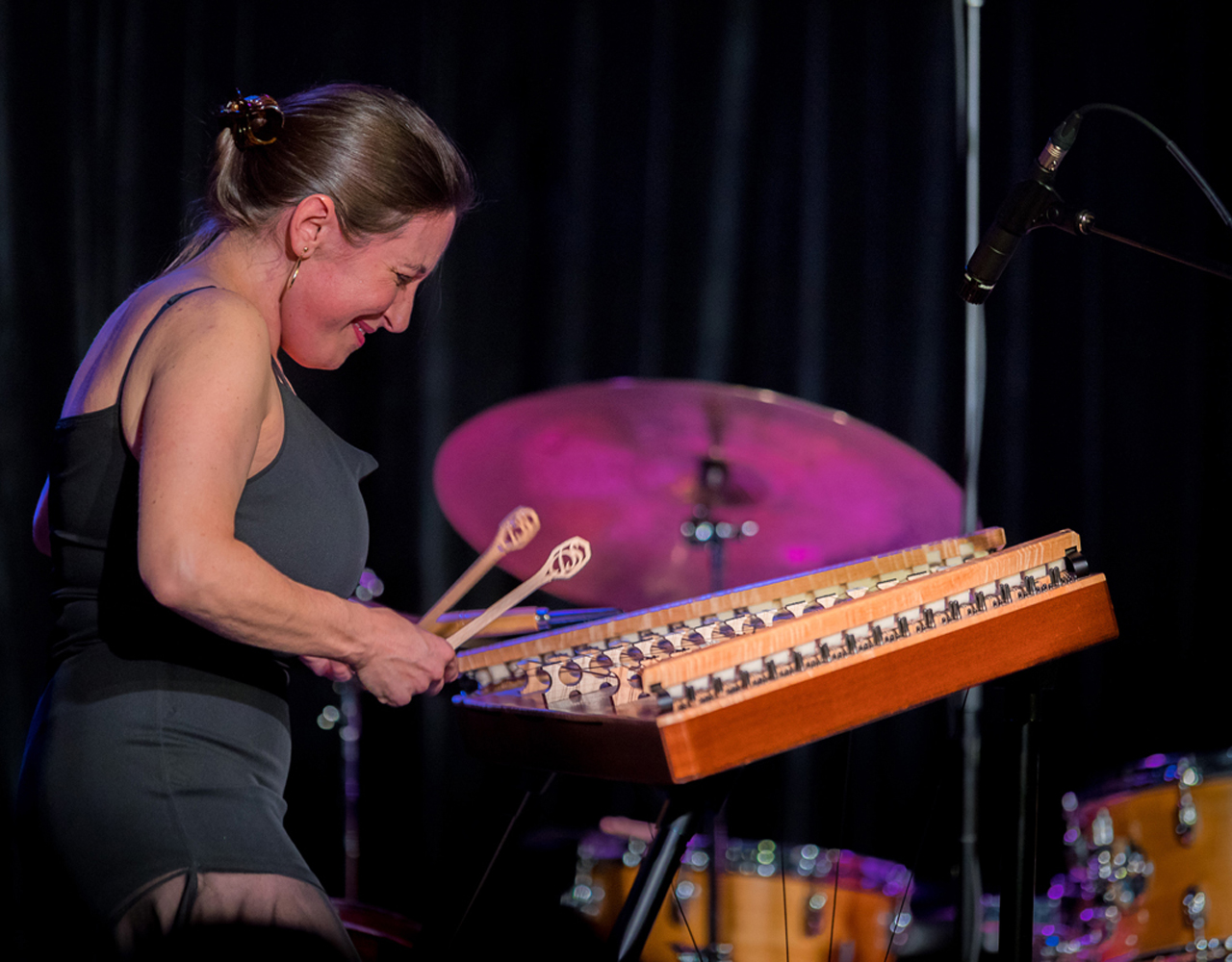
Attempts to characterize the music of pianist Marina Albero seem to get lost in the details. The Barcelona born pianist arrived in Seattle in 2014, her career put mostly on hold while she focused on her children and new life in a new country. During her time here, she has found her identity as an artist that reflects her life in music from her origins in Spain, to her new-found artistic identity in Seattle. In this album of three volumes, she gifts her audience with her stunning virtuosity, merging a multiplicity of musical streams into a common, original form.
Volume one, “Albero,” is a recording made in Spain a decade ago with her historic musical family in Barcelona. The second volume entitled “Agua” is a collection of in-the-moment improvisations. It seems as though Albero taps into memories vividly recalled autobiographically, as dormant musical adventures are suddenly given a springboard into her current artistic here and now. Volume three, “Music is Love,” features Albero with her Seattle band, featuring Hans Teuber, D’Vonne Lewis, Jeff Johnson, and Jeff Busch. She is also joined by her daughter, vocalist Serena Dominguez Albero, and son, saxophonist Marcel Dominguez Albero. Albero fuses jazz, afro-cuban and flamenco forms, as well as the music of her late father, the great Catalan composer, Maria Albero. Her deft touch, musical eloquence, and pure energy makes this recording a pure joy.
NW ACOUSTIC ENSEMBLE OF THE YEAR
Kate Olson’s KO Ensemble
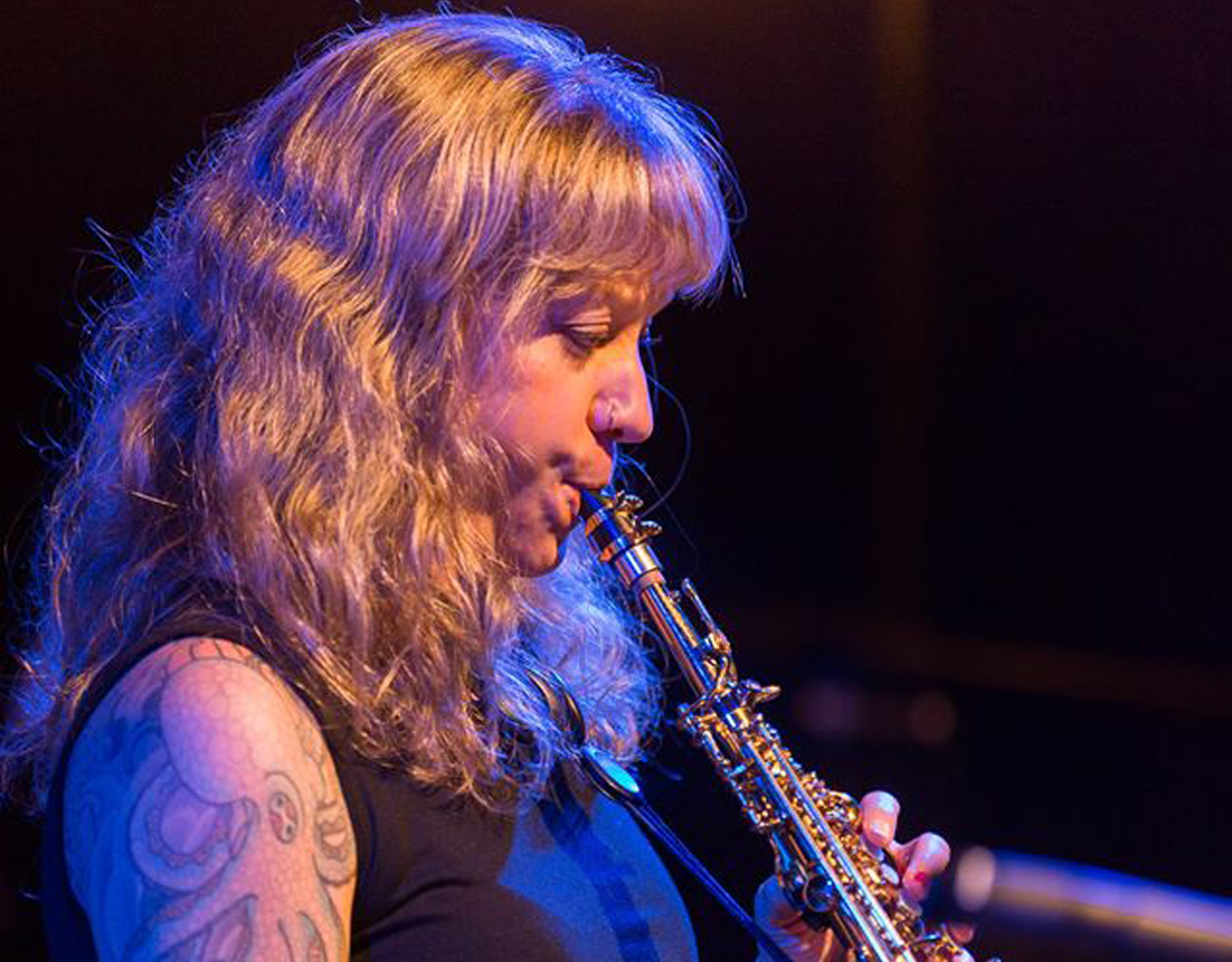
While saxophonist Kate Olson has gained notoriety as a trailblazing arbiter of the outer stratosphere of jazz with her solo work, and Syrinx Effect duo with Naomi Moon Siegel, her KO Ensemble has been offering a different side of her musical persona. The ensemble has been her most visible live band over the past few years.
Olson in a way, entered the jazz continuum through the side door. We first became acquainted with her through the Racer Sessions and the subsequent connections made there. In KO Ensemble, she is featured on soprano saxophone and is supported by a rotating cast of Seattle’s creative musicians, including bassist Chris Symer, pianist Alex Guilbert, and drummer Brad Gibson. For Olson, the personnel amounts to steadying influences that allow her to find her voice in the music. Symer’s orchestral approach to bass adds the elements of eloquence and virtuosity, while Guilbert’s sparse, spatial comping provides ample room for Olson to expand a melodic idea within an elastic sense of swing.
KO Ensemble bears witness to an artist descending to post-bop terra firma, while at the same time, ascending artistically.
NW ALTERNATIVE JAZZ GROUP OF THE YEAR
Comfort Food
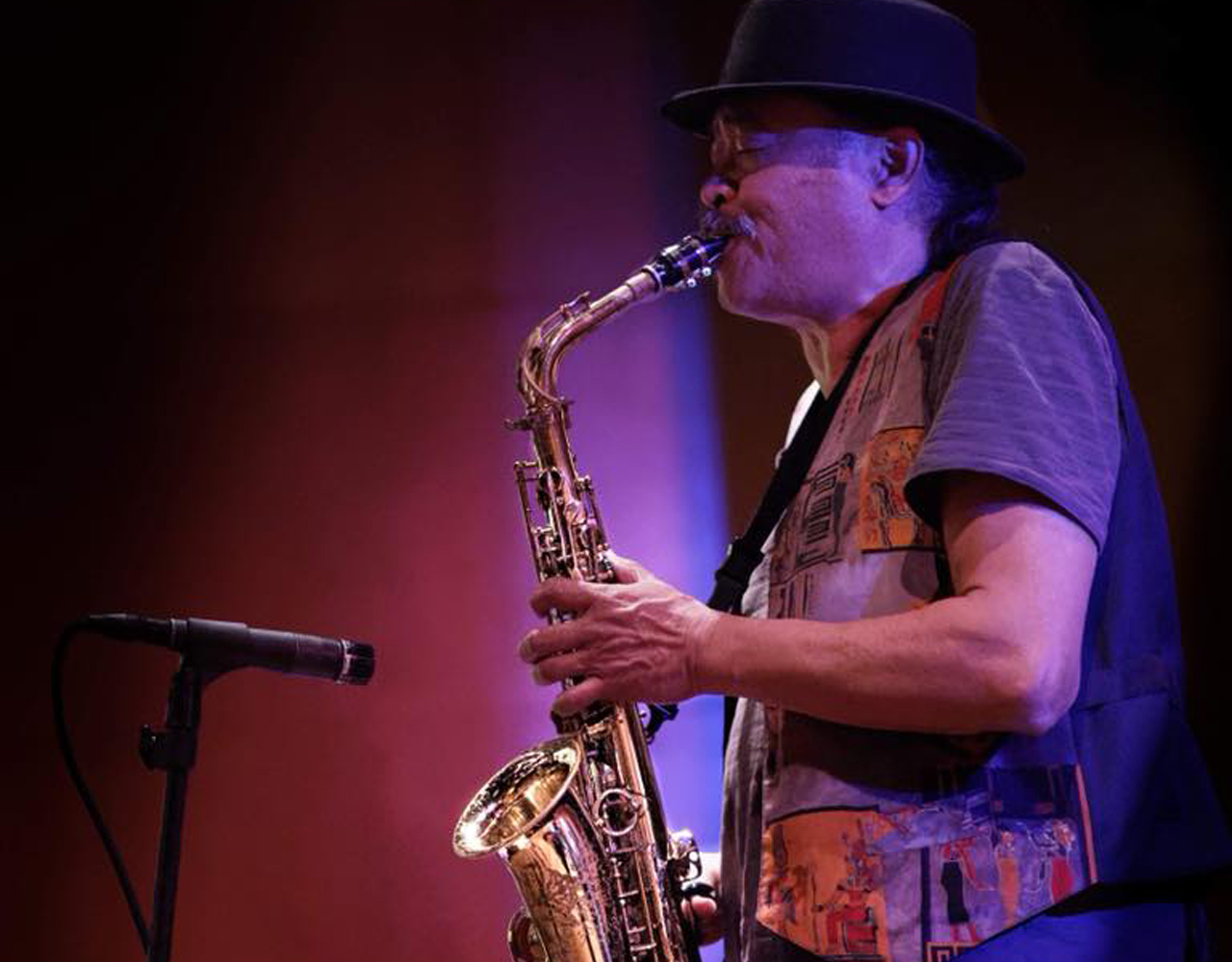
On the Comfort Food Facebook page, the band describes itself as “Bitches Brew meets Fela Kuti.” Terms such as Nu-Jazz, reggae fusion jazz, and neo-funk are offered as well, but there has been a term out there since the aforementioned Miles Davis classic was released that covers it all—fusion.
Seattle’s Comfort Food (not to be confused with the Chicago fusion/noise duo of the same name) is a fusion of musical neighborhoods within a city soundscape. The band is groove based and is driven by the undercurrent of well-known Seattle percussionists Thione Diop and Ahkeenu Musa. Bassist Lennox Holness and drummer Paul Huppler push a commotion of moving parts forward, creating a vehicle of sound to the benefit of saxophonist Bob Antolin’s winding, angular melodic passages. Guitarist Jaiman Crunk and keyboardist Yogi McCaw are beneficiaries of this sonic rhythm section as well, themselves creating intuitive support, and imaginative soloing.
Comfort Food is a live phenomenon, their inclinations spurred on by the vibe of the night, of the venue, and most importantly, their audience.
NW CONCERT OF THE YEAR
Kiki Valera y su Son Cubano, October 26, Town Hall Seattle
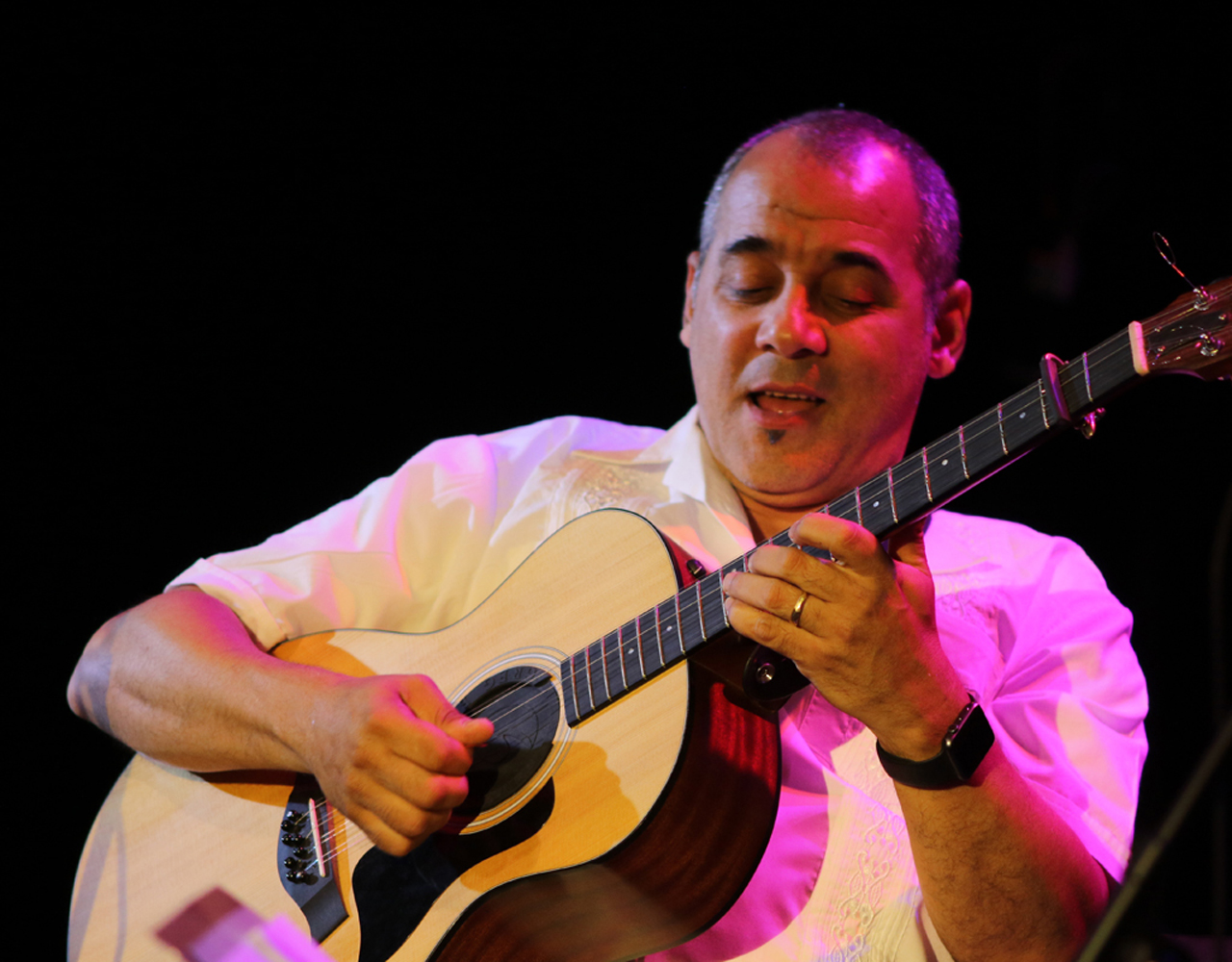
Kiki Valera y su Son Cubano’s Earshot Jazz Festival performance at Town Hall was a great evening for both listeners and dancers alike. On the heels of his new release on Origin Records, Valera led his band through the music of Vivencias en Clave Cubana (Origin, 2019) with virtuosic precision and infectious pulse.
Jazz fans may question why a performer of traditional Cuban Son music would be considered for a jazz award, much less record for a well-regarded jazz label such as Seattle based Origin. Valera took advantage of his performance in the Great Hall to provide the answer. One of the world’s renowned practitioners of the Cuban cuatro, he improvises with the wisdom and melodic vision of a great post-bop adventurer, all the while never straying from the striations of form he has carried forward from his heralded musical family—la familia Valera Miranda.
The Great Hall was indeed lit up, with the band’s call and response vocals, and infectious rhythms inspiring a legion of enthusiastic dancers near the stage. Valera’s award, along with the two received by Barcelona born Marina Albero, highlights the good fortune of our city to call these international stars our own. Along with Brazilian pianist Jovino Santos Neto, a past multi-Golden Ear recipient, this once remote cultural outpost and its vibrant and historic jazz scene now sports a wide and international scope.
NW EMERGING ARTIST OF THE YEAR
Kelsey Mines
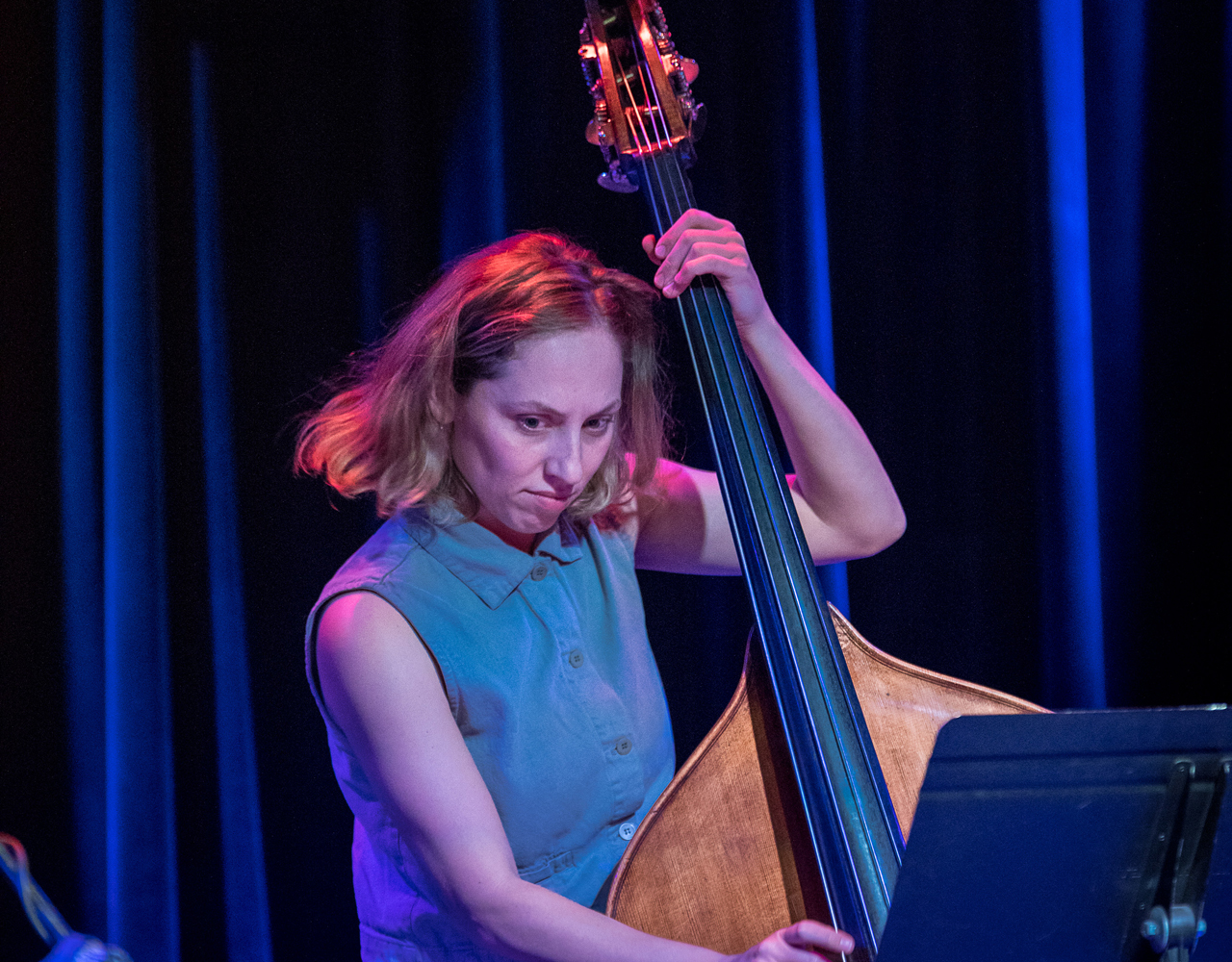
Bassist Kelsey Mines was one of three strong women nominated for this important award. Along with bassist Abbey Blackwell and saxophonist Sidney Hauser, this recognition lands her directly in the forefront of generational change that clearly favors gender equity in jazz music. Mines’ artistic background, and ability to apply her talents seamlessly between double bass and electric has made her an in-demand bassist in a city with a plethora of great bassists.
The daughter of noted jazz educator and trumpeter Mike Mines, Ms. Mines has a diverse résumé. In 2016, she was a recipient of the Holland Scholarship, giving her the opportunity to study double bass with Sorin Orcinschi at the Prince Claus Conservatoire in Groningen, the Netherlands. Her studies there, and her mastery of classical bass has led to performances with the Yakima Symphony and Symphony Tacoma.
Mines’ foray into the world of jazz is diverse, to say the least. She is currently a performing and recording member of Anne Reynold’s Cuban Jazz ensemble, Clave Gringa, the Naomi Moon Siegel Quartet, and Here to Play, an experimental trio featuring Neil Welch (saxophone, electronics), and Seattle drum legend, Gregg Keplinger. 2019 saw the release of the band’s self-titled album, featuring collective improvisation within sonic ebbs and flows. Her most recent project is a duo with guitarist Carlos Snaider, earthtoneskytone, which they describe as ‘sound and silence, joy and mystery, devoted to the imperfect perfection of nature within and among us. Music for the living.”
Mines’ innovative spirit, and open mind in terms of convention, is evident in whatever musical path she decides to travel. She is sharing her broad knowledge as an educator and mentor at Bellevue College, JazzEd, and the Lakeside School, as well as mentoring individual students in both double and electric bass at her home studio.
NW INSTRUMENTALIST OF THE YEAR
Marina Albero
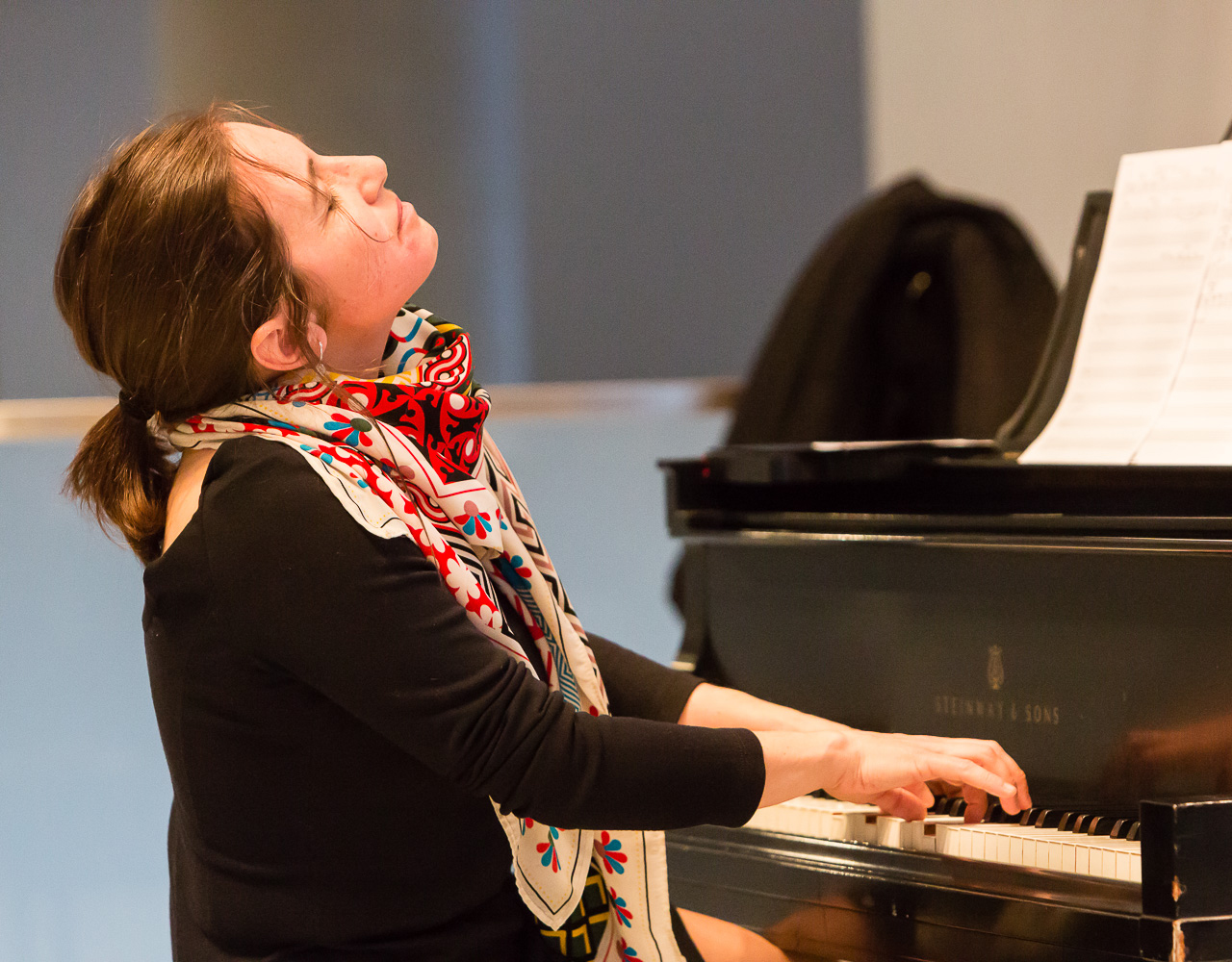
Marina Albero has offered the Seattle jazz scene something new, and completely original since her arrival from Barcelona six years ago. Her music reflects her background in classical, jazz, flamenco and Afro-Cuban forms. Through it all, her sublime virtuosity as a pianist, and trailblazing approach on psalterium has enabled her music to continue to move forward, to probe new territory, and seek new challenges.
Her playing evokes images of jazz piano greats such as Bill Evans, while at the same time bearing the influence of flamenco icons like guitarist Paco de Lucía. Her formative years in Cuba have accented her playing with flashes of Afro-Cuban rhythms, while displaying the discipline and deep understanding of melody and form
of classical training. On psalterium, commonly known as hammered dulcimer, Albero bears the mark of a true innovator. While experimenting with tunings on the diatonic instrument, she has conjured sounds previously unexplored, while vastly expanding the harmonic reach of the instrument.
Just last year Albero received the Emerging Artist of the Year award, proving that in a city and jazz community replete with world class musicianship, Albero has added her name into the diverse blend of historic talents that have come before her. Much like her predecessors, her energy, vision and sublime chops have taken her places that defy geography and style.
NW VOCALIST OF THE YEAR
Jacqueline Tabor
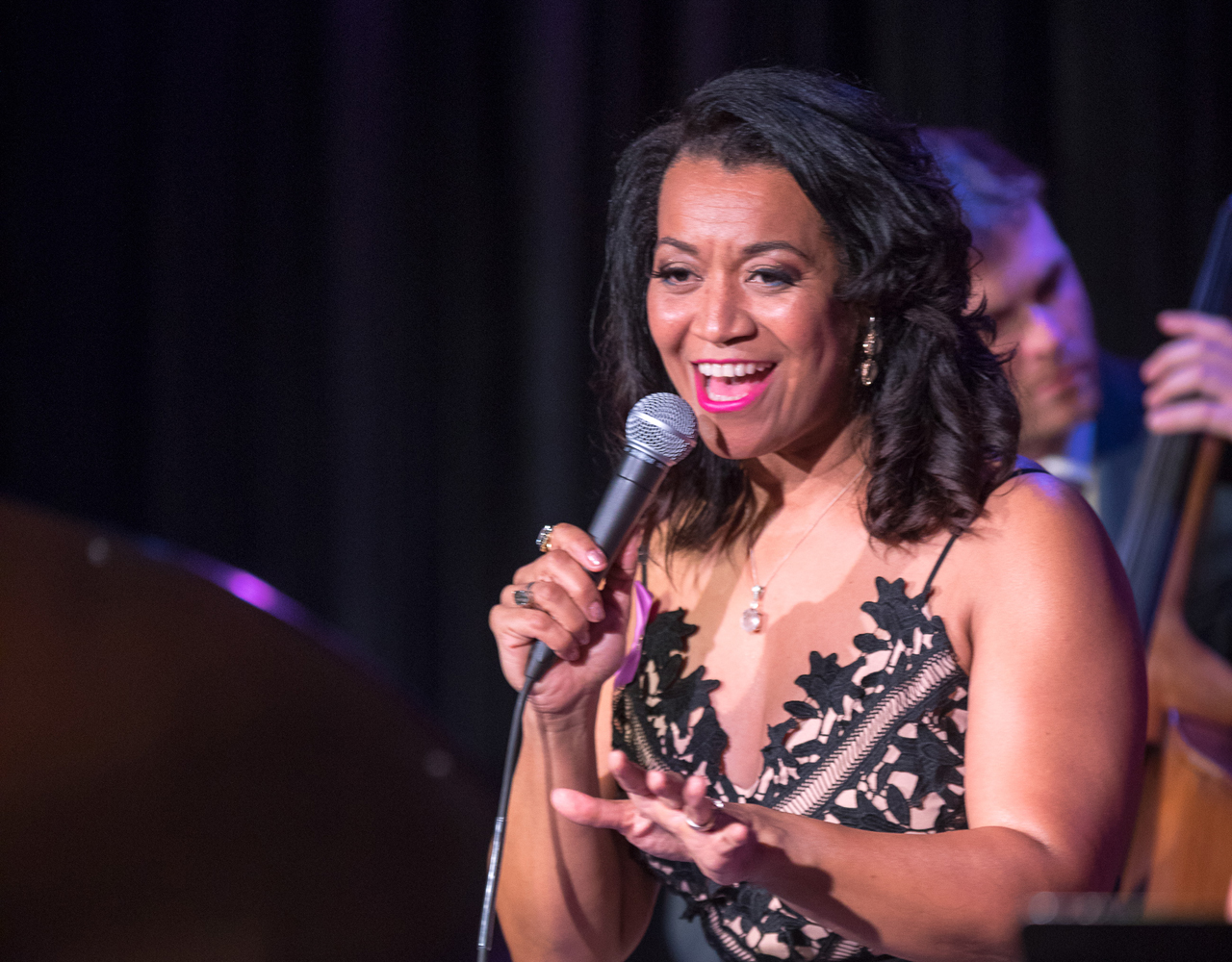
2019 went by like a whirlwind for vocalist Jacqueline Tabor. It was a year of significant opportunity for the Seattle singer, on the heels of her well received 2018 release, The Lady in the Gown. Tabor was twice featured in the past year with the Seattle Repertory Jazz Orchestra, first celebrating the Jazz of the Harlem Renaissance, then diving into the legacy of a jazz legend in Tribute to Billie Holiday.
This marks the second consecutive Golden Ear Award for Tabor, who throughout her evolution as an artist in Seattle has always stayed true to her deep understanding of the blues. As an artist who found herself as a singer later in life than most, Tabor’s delivery speaks to her everyday life, her trials and tribulations as a worker, and a mother. Her intuition for surrounding herself with the right talent has accelerated her career to the benefit of the Seattle jazz community.
SEATTLE JAZZ HALL OF FAME
Michael Brockman
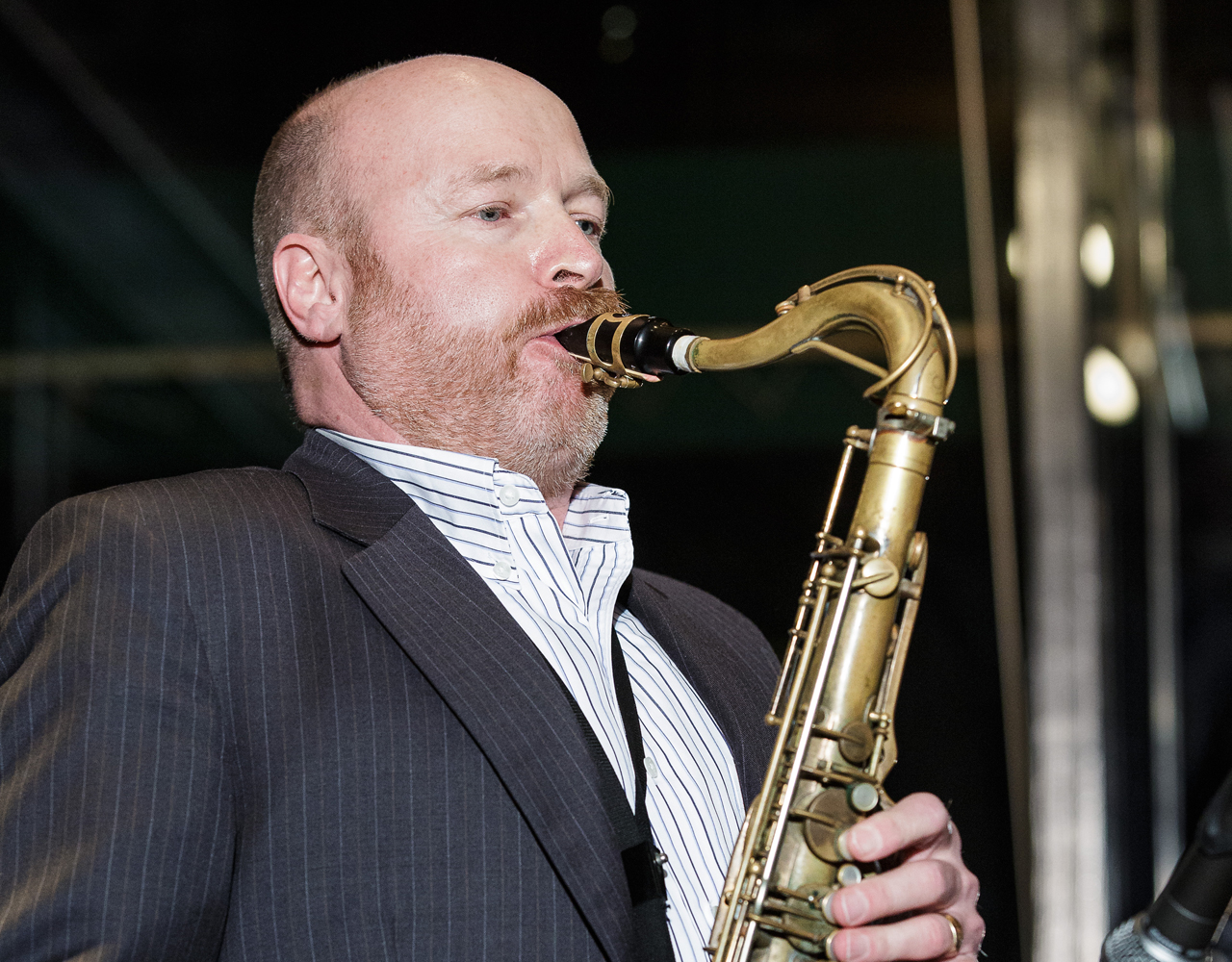
Michael Brockman’s entrance into the Seattle Jazz Hall of Fame comes as no surprise to anyone remotely engaged with the jazz community here. His contributions to a large degree are expressed in the major institutions his drive and vision have inspired.
Brockman has been mentoring jazz students at the University of Washington since his arrival here in 1987. He has performed frequently in the classical realm as well, being featured with the Seattle Symphony and Pacific NW Ballet Orchestra. Since 1995, he has co-directed the award-winning Seattle Repertory Jazz Orchestra with the iconic educator and drummer, Clarence Acox.
As well as being a master of woodwinds, Brockman is a noted composer, arranger and master of transcription. His studies and performance skills have been enabled and embellished by such jazz luminaries as Jaki Byard, George Russell, Wynton Marsalis, and Quincy Jones.
Brockman’s contributions as founder of SRJO, and his valued long-term commitment to establishing the world class jazz program at the UW, define his credentials as a Seattle Jazz Hall of Fame inductee. These contributions will have a lasting impact on jazz culture in Seattle for many generations to come.
Suzanne Weghorst
Small place, big time. That is the moniker attached to Egan’s Ballard Jam House, the tiny jazz spot in the heart of the Ballard. For nearly 15 years, the prominent marquee marking the Market St. institution has displayed the names of hundreds of artists, from international jazz luminaries, to student combos.
In a time when small businesses, much less jazz clubs, continue to struggle in the city of Seattle, Suzanne
Weghorst is all in from Wednesday to Saturday at Egan’s, presenting shows that reflect wave after wave of new Seattle talent, as well as sets performed by established local artists. The club has never been more important in the community, as noted venues such as Tula’s and the New Orleans have closed their doors in recent years.
Weghorst follows fellow club proprietors Red Kelly (1999), John Dimitriou (2001), Gaye Anderson (2004) and Mack Waldron (2005) into the Hall of Fame. All have provided vital spaces for the evolution of jazz artists and their music in our city. While established artists have prospered by clubs such as Jazz Alley and Tula’s, Egan’s has seen fit to be sure students and underage musicians have opportunities, a place to grow and receive feedback and the inspiration it brings. On occasion, major artists such as Peter Bernstein and George Colligan have appeared. The club as well serves as a vital venue on the annual Ballard Jazz Walk. While the future of the club, and of Weghorst’s involvement remains to be seen, the legacy of both has been well established as essential and historic in their time.
Gary Bannister
By Paul de Barros
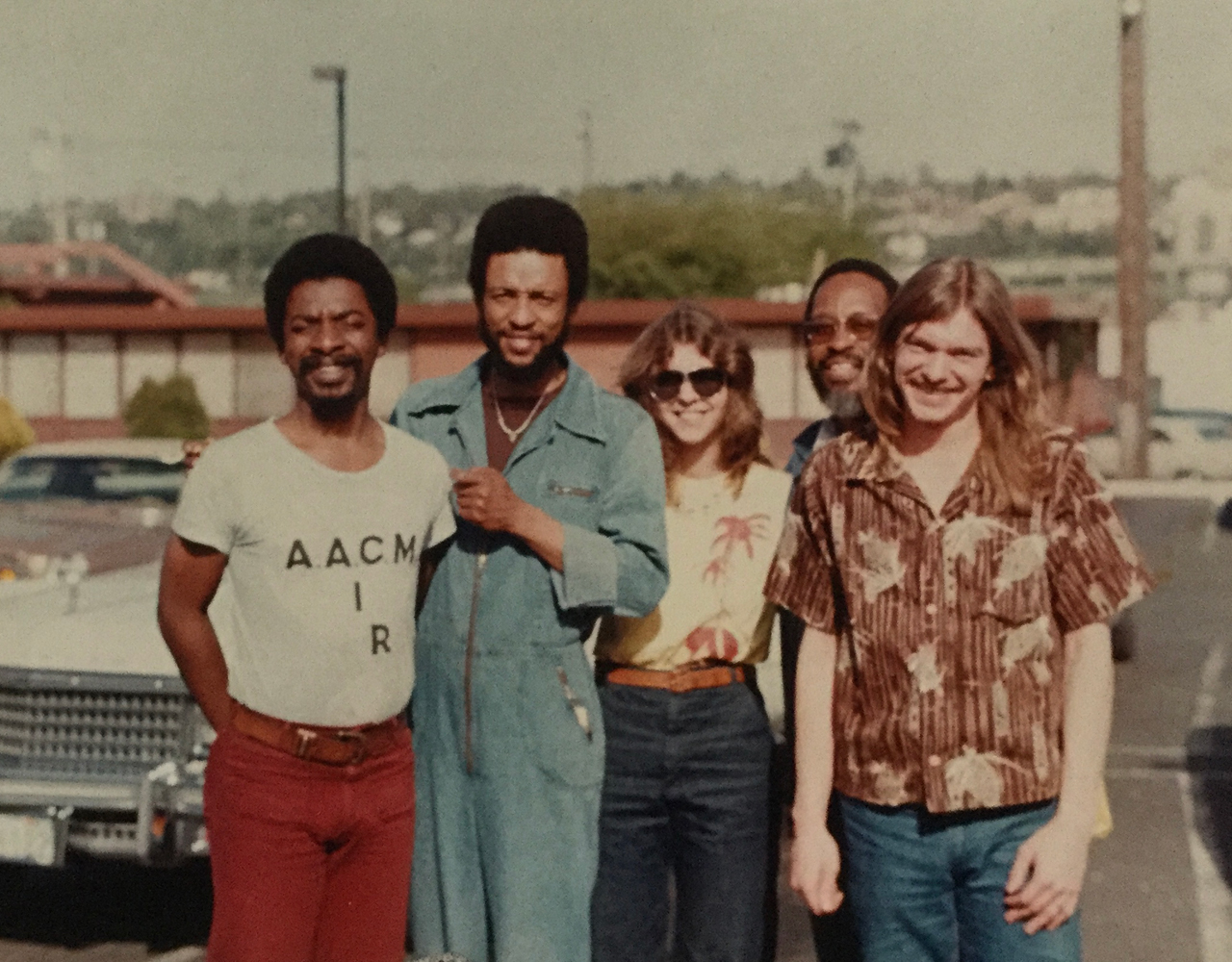
I’m pretty sure it was Gary Bannister who came up with the idea to honor local musicians with the Earshot “Golden Ear” awards, so it’s fitting that he was inducted into the Hall of Fame this year. Gary was passionate about jazz, and he put that passion into practice all his life (he died in 2010), presenting shows, writing reviews, releasing albums, teaching jazz history, booking Jazz Alley and deejaying a very hip show on the old KRAB radio. I met Gary in the fall of 1979, when he and three other jazz advocates were putting on avant-garde shows at the Seattle Concert Theatre (now a parking lot).
Listening to records with Gary was unique. The music drew him in so deeply that sometimes he felt far away, and yet somehow, he took you with him, so you started hearing the music the way he did. He had a “golden ear,” all right. He later ran a jazz loft with drummer Jeff Ferguson under the viaduct. The concert they presented by Old and New Dreams was one of the best I’ve ever heard, though the earlier ones by Air and the Art Ensemble weren’t too shabby! Jeff played in the Al Hood Quartet, whose album, Not Quiet Rite, came out on Gary’s label, AuRoar; it remains a favorite.
In 1984, I called Gary to see if he might want to help start an organization to promote jazz in Seattle. “When do we start?” he said. And that’s pretty much how Earshot was born. I can’t say we always agreed. He sometimes seemed to love what was new at the expense of what was old; I saw Earshot as more ecumenical. But by 1989, with the help of Mark Solomon, Earshot produced a well-rounded festival that, as Earshot readers know, continues to this day. Gary’s legacy lives on in that annual event and every day in the spirit of Earshot Jazz.